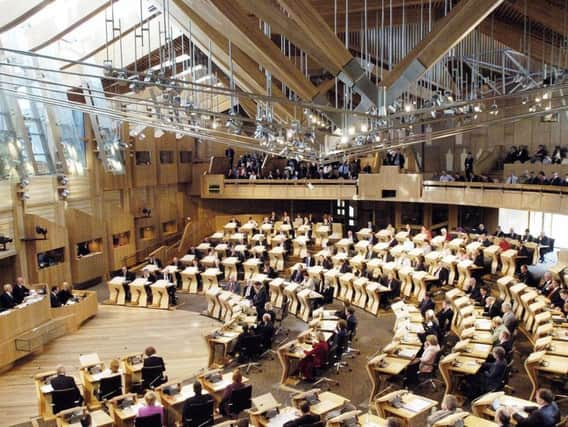Scottish Parliament five-year terms to become permanent


New legislation also proposes increased flexibility in council constituencies to allow for wards to be represented by two or five councillors in addition to three and four-member wards.
Recent Holyrood terms have actually lasted five years, but this came after one-off changes to the system to avoid clashes with Westminster.
Advertisement
Hide AdAdvertisement
Hide AdThe Scottish Elections (Reform) Bill would make Scottish Parliament and local authority elections in Scotland every five years instead of the current cycle of four years.
MSPs on Standards, Procedures and Public Appointments committee today backed the change in a report.
Convener Bill Kidd said: "How our elections are run in Scotland has a direct impact on engagement and participation.
"Everybody should feel that they are represented and can have a say in how local and national policies are running."
The Bill also proposes simplifying the process of allowing people who are too young to vote to register early.
Currently, young people who are 14 years old before December 1 of that year can register to vote, something the Scottish Government claims is "unnecessarily complicated", according to the report.
If passed, the new legislation would allow any 14-year-old to register early for Scottish Parliament and local council polls.
Committee deputy convener Mark Ruskell said that would signal the Scottish Parliament's intent to listen to the views of young people.
Advertisement
Hide AdAdvertisement
Hide AdThe voting age for Scottish Parliament and local council elections is 16, whereas voters must be 18 to cast a ballot in Westminster elections.
Mr Ruskell said: "Young people have to be at the heart of our democracy.
"These changes send a clear signal that we want the voices of young people across Scotland to be heard and for them to play their part in Scottish democratic life.
"But it is crucial that everybody is informed how the electoral process works and what this means for them.
"We would urge the Scottish Government to make sure this type of information is made available to young people."
The legislation also addresses the possibility of electronic voting, which the committee said should be treated with caution, making voting twice in the same council election an offence in the same way as for Scottish and UK Parliament elections and allowing the Presiding Officer to postpone a vote in extreme circumstances.